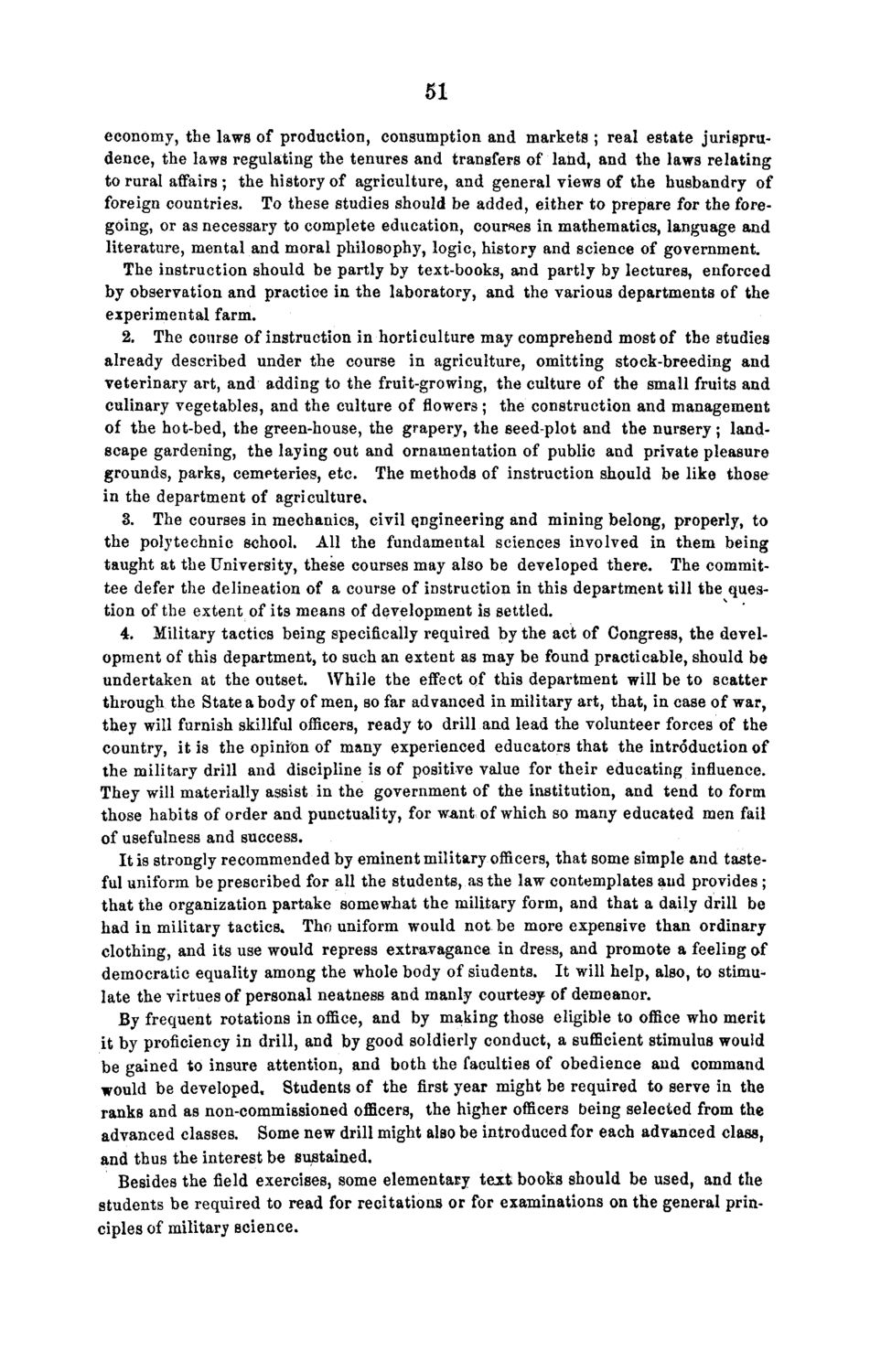| |
| |
Caption: Board of Trustees Minutes - 1868
This is a reduced-resolution page image for fast online browsing.

EXTRACTED TEXT FROM PAGE:
51 economy, the laws of production, consumption and markets ; real estate jurisprudence, the laws regulating the tenures and transfers of land, and the laws relating to rural affairs; the hi story of agriculture, and general views of the husbandry of foreign countries. To these studies should be added, either to prepare for the foregoing, or as necessary to complete education, courses in mathematics, language and literature, mental and moral philosophy, logic, history and science of government. The instruction should be partly by text-books, and partly by lectures, enforced by observation and practice in the laboratory, and the various departments of the experimental farm. 2. The course of instruction in horticulture may comprehend most of the studies already described under the course in agriculture, omitting stock-breeding and veterinary art, and adding to the fruit-growing, the culture of the small fruits and culinary vegetables, and the culture of flowers; the construction and management of the hot-bed, the green-house, the grapery, the seed-plot and the nursery; landscape gardening, the laying out and ornamentation of public and private pleasure grounds, parks, cemeteries, etc. The methods of instruction should be like those in the department of agriculture. S. The courses in mechanics, civil engineering and mining belong, properly, to the polytechnic school. All the fundamental sciences involved in them being taught at the University, these courses may also be developed there. The committee defer the delineation of a course of instruction in this department till the question of the extent of its means of development is settled. 4. Military tactics being specifically required by the act of Congress, the development of this department, to such an extent as may be found practicable, should be undertaken at the outset. While the effect of this department will be to scatter through the State a body of men, so far advanced in military art, that, in case of war, they will furnish skillful officers, ready to drill and lead the volunteer forces of the country, it is the opinion of many experienced educators that the introduction of the military drill and discipline is of positive value for their educating influence. They will materially assist in the government of the institution, and tend to form those habits of order and punctuality, for want of which so many educated men fail of usefulness and success. It is strongly recommended by eminent military officers, that some simple and tasteful uniform be prescribed for all the students, as the law contemplates and provides ; that the organization partake somewhat the military form, and that a daily drill be had in military tactics. Tho uniform would not be more expensive than ordinary clothing, and its use would repress extravagance in dress, and promote a feeling of democratic equality among the whole body of siudents. It will help, also, to stimulate the virtues of personal neatness and manly courtesy of demeanor. By frequent rotations in office, and by making those eligible to office who merit it by proficiency in drill, and by good soldierly conduct, a sufficient stimulus would be gained to insure attention, and both the faculties of obedience and command would be developed. Students of the first year might be required to serve in the ranks and as non-commissioned officers, the higher officers being selected from the advanced classes. Some new drill might also be introduced for each advanced class, and thus the interest be sustained. Besides the field exercises, some elementary text books should be used, and the students be required to read for recitations or for examinations on the general principles of military science.
| |